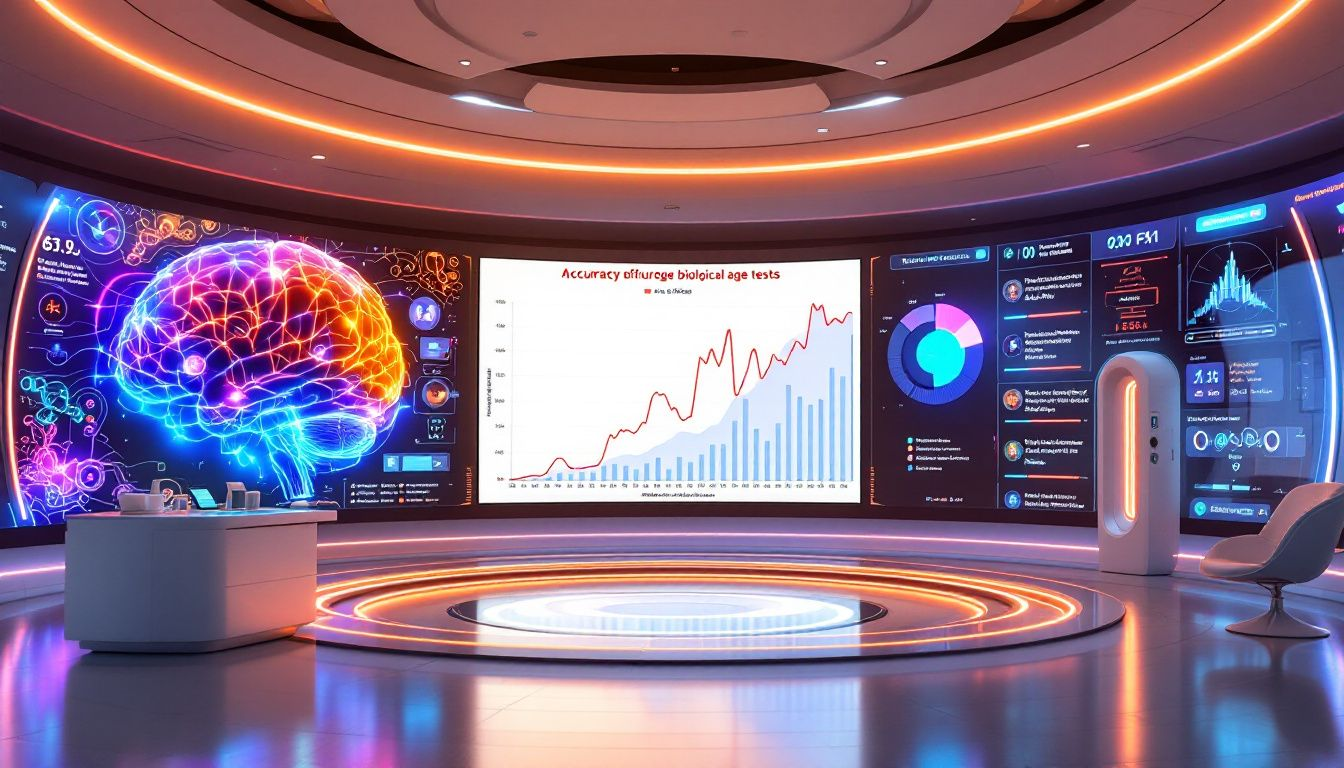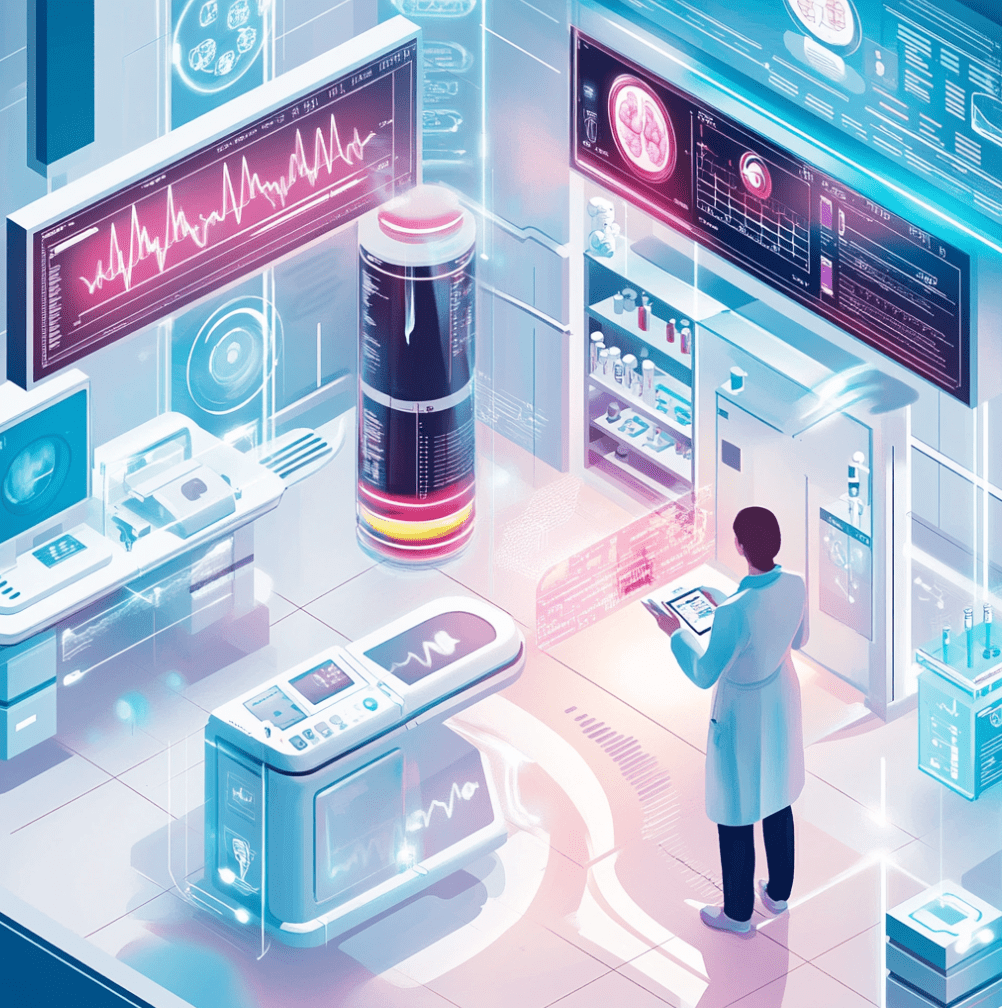How Accurate Are Age Tests? The Truth Behind Biological Age Measurements

Table of Contents
Biological age tests are becoming increasingly popular as people seek deeper insights into their health beyond traditional check-ups. Unlike chronological age, which simply counts the years you’ve been alive, biological age reflects how well your body is aging internally. From assessing DNA methylation to tracking telomere length, these tests claim to predict health risks and uncover hidden signs of aging. But how accurate are they, and can you trust the results? This article breaks down the science behind measuring biological age testing, explores its accuracy, and highlights the strengths and limitations of different methods. Whether you’re curious about longevity or looking to improve your health, understanding the reliability of age tests is essential.
Key Takeaways
- Biological age tests offer insights into internal health by measuring factors like DNA methylation and telomere length, giving a deeper understanding of aging compared to chronological age.
- While these tests can help predict health risks, their accuracy varies due to differing methods and the need for standardization, especially with DNA methylation and telomere measurements.
- Biological age testing is beneficial for those looking to optimize health and longevity, but it’s essential to consider lifestyle factors and recognize the limitations of current testing methods.
Biological age tests measure functional aging and predict health and mortality more accurately than chronological age. It reflects cellular integrity, organ function, and systemic health, influenced by internal and external factors. Biomarkers like DNA methylation, telomere length, and inflammation track bodily wear, offering insights for personalized health decisions and lifestyle changes.
How Biological Age Tests Work?
Biological age tests evaluate biomarkers to assess how well an individual's body is aging. These tests go beyond chronological age, analyzing cellular and molecular health to provide a detailed overview of internal aging processes. DNA methylation (epigenetic clocks), telomere length, and blood biomarkers reveal insights influenced by genetics, lifestyle, and environment.
DNA methylation patterns shift with age, serving as key indicators of biological aging. Telomere length reflects cellular health, while blood biomarkers like inflammatory proteins and glucose provide insights into systemic aging. Despite variability in testing methods, advances in AI and machine learning are improving accuracy. Biological age tests empower individuals to adopt healthier lifestyles, slowing aging and enhancing quality of life through tailored health strategies. Let's discuss key methods for biological age testing.
How to Evaluate the Accuracy of Age Tests?
Biological age tests vary in accuracy depending on biomarkers and methodologies used. DNA methylation, telomere length, and blood biomarkers often yield differing results. Standardization and multi-biomarker models improve test reliability. AI and machine learning enhance accuracy by analyzing complex patterns in large datasets. Ongoing research integrates genetic, proteomic, and physiological data to refine predictive models.
Accurate biological age tests guide preventive health strategies by identifying age-related risks and personalizing interventions. As models evolve, they offer individuals actionable insights for optimizing health and longevity. Let's discuss the accuracy and reliability of different age test methods.

Reliability of DNA Methylation Clocks
DNA methylation clocks estimate biological age by analyzing epigenetic changes at CpG sites. These clocks predict aging and health outcomes by detecting consistent methylation patterns. Variability exists between models like the Horvath and GrimAge clocks, necessitating standardization for reliable results. Methylation clocks predict age-related disease risk and reflect lifestyle influences on aging. Clinicians may use them to guide interventions, track health, and personalize anti-aging strategies. Advances in AI and biomarker integration continue to enhance their accuracy and clinical relevance.
Variability in Telomere Age Testing
Telomere testing measures true biological age but is subject to variability due to differences in techniques, sample handling, and genetic factors. Methods like qPCR, TRF, and Flow FISH vary in sensitivity and accuracy. Environmental influences and lab protocols further complicate results. Variability limits telomere testing’s accuracy as a standalone marker. Standardization efforts and multi-biomarker models are improving reliability. Telomere testing remains valuable but is most effective when combined with other aging indicators.
Accuracy of Blood Biomarker Tests for Biological Age
Blood biomarker tests guide early intervention, and personalized health strategies, and track aging over time using a biological age calculator. These tests provide a comprehensive view of aging by measuring systemic health across multiple organ functions. Biomarkers like glucose, CRP, and liver enzymes reveal early signs of aging and disease risk. Accuracy can vary due to genetic differences, transient fluctuations, and inconsistent lab methods. Standardization and AI integration improve precision by identifying patterns in biomarker data. Blood biomarker tests guide early intervention, personalized health strategies, and track aging over time.
Fountain Life Provides Advanced and Accurate Biological Age Testing
For individuals looking to go beyond standard biological age tests, Fountain Life provides cutting-edge health assessments that integrate AI-driven diagnostics, multi-biomarker analysis, and predictive modeling. By combining insights from DNA methylation, telomere length, and blood biomarkers, Fountain Life delivers highly precise biological age evaluations that empower clients to take proactive steps toward longevity and disease prevention.
Fountain Life’s innovative platform not only helps detect early signs of aging but also offers personalized wellness plans designed to optimize health and improve quality of life. With a focus on early intervention and tailored health strategies, Fountain Life is revolutionizing the future of preventive healthcare.
How Does the Accuracy of Biological Age Tests Compare to Other Health Assessments?
Biological age tests provide a deeper understanding of health by evaluating molecular and cellular aging processes. Unlike traditional health assessments that focus on physical performance, cardiovascular health, and organ function, biological age tests analyze biomarkers such as DNA methylation, telomere length, and inflammatory proteins. This holistic approach identifies early signs of accelerated aging, predicts future disease risks, and reveals insights that standard medical tests may overlook. By integrating biological age testing with conventional assessments like blood work and physical performance evaluations, individuals gain a more accurate picture of overall health and longevity prospects.
What is the Future of Biological Age Testing?
The future of biological age testing is advancing through technology, AI, and wearable devices, offering precise health insights and continuous monitoring. Machine learning enhances accuracy, while personalized medicine tailors treatments based on biological age. These innovations improve early disease detection and longevity research, with applications in population health, corporate wellness, and clinical trials. Addressing data privacy and accessibility ensures ethical implementation, positioning biological age testing as a key driver in proactive health management and extended lifespan.

Bottom Line: How Accurate Are Age Tests
Biological age testing offers a fascinating glimpse into how our bodies age and how we can potentially influence this process. From DNA methylation and telomere length to blood biomarkers, these tests provide valuable insights into our internal health. While there are challenges in accuracy and applicability, the advancements in technology and research promise a future where biological age testing could become a standard part of health assessments, guiding us toward healthier and longer lives.
FAQs About the Accuracy of Biological Age Tests
How Reliable Are Biological Age Tests Over Time?
Biological age tests can produce varying results over time due to factors like stress, illness, and temporary changes in biomarkers. The reliability of biological age tests over time depends on the consistency of testing conditions and the method used. Regular testing can help track trends rather than relying on single test results.
What Makes One Biological Age Test More Accurate Than Another?
The accuracy of one biological age test over another is influenced by the type of biomarkers measured, the testing technology, and the model used for analysis. Tests that combine multiple biomarkers, such as DNA methylation and blood biomarkers, are typically more accurate than those that focus solely on telomere length.
Can Biological Age Tests Be Inaccurate for Certain Individuals?
Yes, biological age tests can be less accurate for certain individuals. Factors like genetic variability, lifestyle, and chronic health conditions can skew results. Individuals with fluctuating health markers may experience inconsistent readings.
Do Biological Age Tests Account for Environmental and Lifestyle Factors?
Most biological age tests primarily measure internal biomarkers, but they do not fully account for environmental and lifestyle factors. Some advanced models incorporate lifestyle data to refine accuracy, but results can still reflect cellular changes more than external influences.
How Do At-Home Biological Age Tests Compare to Clinical Tests?
At-home biological age tests can provide insights but often lack the depth and precision of clinical tests. Clinical tests analyze a broader range of biomarkers and use more advanced equipment, resulting in higher accuracy.
Do Biological Age Tests Reflect the Health of Specific Organs?
Most biological age tests provide a general assessment of systemic aging, but some advanced tests focus on specific organs by measuring targeted biomarkers for liver, heart, or brain health.
Is There a Risk of Overestimating or Underestimating Biological Age?
Yes, biological age tests can overestimate or underestimate biological age due to incomplete biomarker analysis or testing inconsistencies. Testing multiple times or using tests that analyze diverse biomarkers can reduce the risk of inaccurate results.
How Does Fountain Life Ensure the Accuracy of Biological Age Testing?
Fountain Life ensures accurate biological age testing by using cutting-edge technology that integrates AI, multi-biomarker analysis, and personalized data. This holistic approach minimizes variability and enhances precision, providing clients with reliable, actionable insights into their health and aging process.



